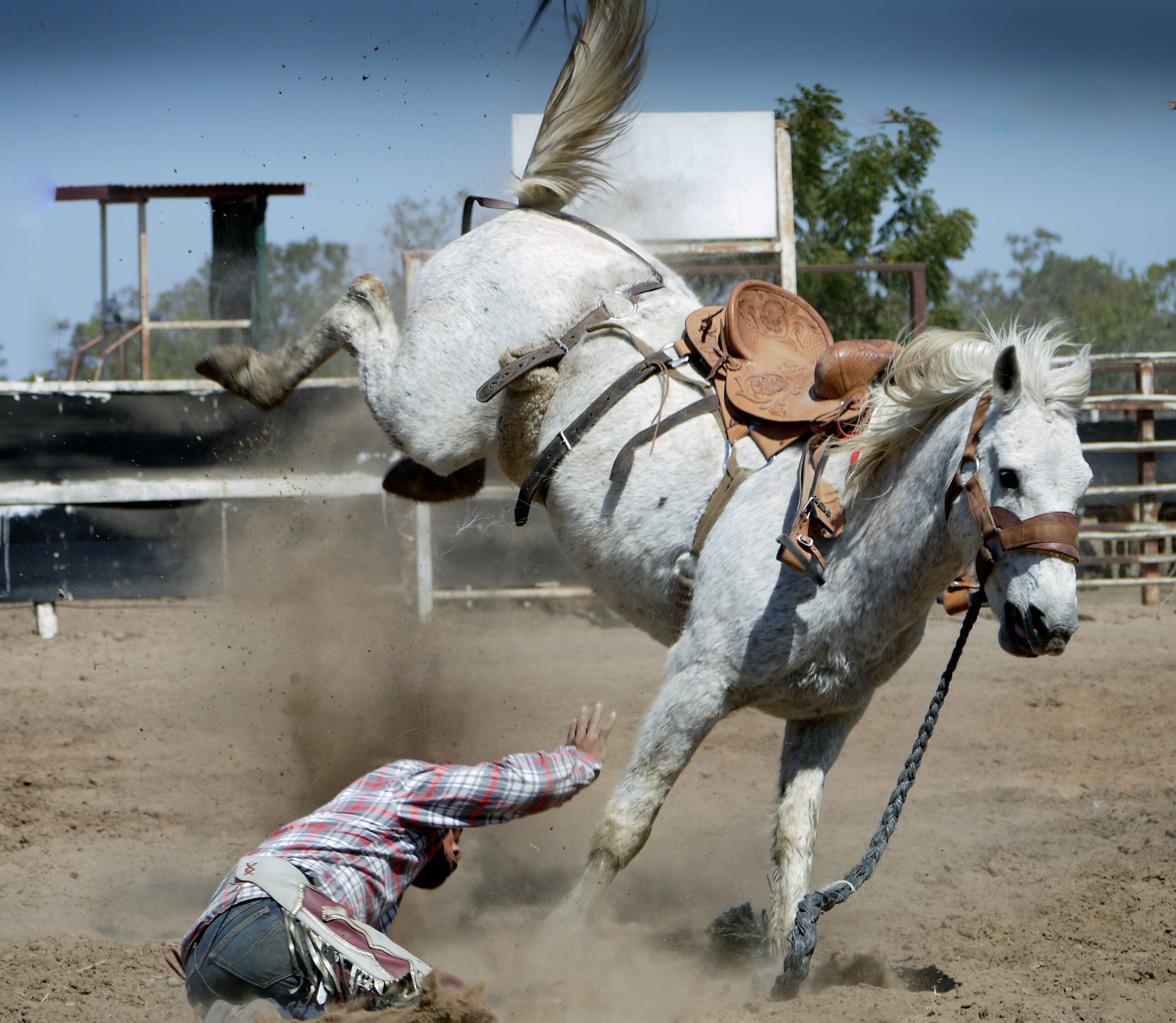Hey there! It’s your buddy Jack here. I’ve got a funny (well, kind of funny) story for you about the time I got bucked off my horse.
I was out on a trail ride with a group of friends and we were trotting along this narrow path.
All of a sudden, my horse starts acting up and trying to buck me off. And let me tell you, it feels like you’re being launched into the air with no control. Unfortunately, I didn’t manage to stay on and ended up falling off.
It was a rough landing, and I definitely felt some pain afterwards. My friends couldn’t stop laughing, but let me tell you, it wasn’t funny at the time.
If you’re wondering whether it hurts to get bucked off a horse, the short answer is: it depends. The severity of the fall and the type of surface you land on can both play a role in how much it hurts.
That being said, getting thrown off a horse can be a jarring and disorienting experience, and it’s not uncommon to experience some pain or discomfort afterwards.
Table of Contents
What to Expect After a Fall
After a fall, it’s not uncommon to experience some pain or discomfort, especially if you land on a hard surface. You might have bruises, cuts, or scrapes, and you might feel sore or stiff the next day.
It’s also possible to experience more serious injuries, such as broken bones or concussion. These types of injuries can be more serious and might require medical attention.
If you’re experiencing severe pain, difficulty breathing, or other unusual symptoms, it’s important to seek medical attention as soon as possible.
How to Prevent Injuries
While it’s not always possible to completely prevent injuries when riding horses, there are a few things you can do to reduce your risk:
- Wear a helmet: Wearing a helmet is one of the most important things you can do to protect yourself while riding. A properly fitted helmet can help reduce the risk of serious head injuries in the event of a fall.
- Wear protective gear: In addition to a helmet, consider wearing other protective gear such as boots with heels, gloves, and padded riding pants. These can help absorb some of the impact in the event of a fall and reduce the risk of injury.
- Stay alert: Pay attention to your surroundings and be aware of any potential hazards, such as low-hanging branches or uneven terrain. This can help you avoid falls in the first place.
What to Do After a Fall
If you do happen to take a spill, it’s important to stay calm and assess the situation. Take a moment to check yourself for any injuries and get to a safe location if necessary.
If you’re experiencing severe pain or discomfort, or if you’re unable to get up, it’s a good idea to call for help.
Once you’ve taken care of any immediate needs, it’s a good idea to reassess your gear and make sure everything is in good working order. Then, if you feel up to it, try to get back on the horse. It’s important to regain your confidence and show the horse that you’re not scared.
FAQ
What if I’m too scared to get back on the horse?
It’s completely understandable to feel scared after getting thrown off a horse. But remember, the horse is probably just as scared as you are. It’s important to try to get back on as soon as possible to regain your confidence and show the horse that you’re not scared.
If you’re really struggling with the idea of getting back on, try asking a friend or instructor to walk alongside you as you ride. Or, consider taking a lesson with a professional to work on your confidence and skills.
What if my horse won’t let me back on?
If your horse is acting up or unwilling to let you back on, it’s possible that it’s feeling anxious or stressed. In this case, it’s important to try to calm the horse down and address the root cause of the behavior.
This might involve working on training techniques, desensitization, or even just spending more time bonding with your horse.
If you’re struggling to get your horse to let you back on, it might be helpful to seek the help of a professional trainer or instructor. They will be able to give you specific recommendations based on your horse’s needs and behavior.
What if I can’t get back on the horse?
If you’re unable to get back on the horse, it’s important to stay calm and try not to get discouraged.
Instead, focus on addressing any injuries or discomfort you may be experiencing and take some time to reassess your gear and the situation.
If you’re really struggling to get back on, it might be helpful to seek the help of a professional trainer or instructor. They will be able to give you specific recommendations based on your horse’s needs and behavior.
My Conclusion
Getting bucked off a horse can be a scary and jarring experience, but it’s important to stay calm and try to get back on as soon as you’re able.
While it’s not always possible to completely prevent injuries, there are steps you can take to reduce your risk, such as wearing a helmet and protective gear and staying alert.
And if you’re struggling to get back on or dealing with a horse that’s acting up, don’t be afraid to seek the help of a professional. With some practice and perseverance, you’ll be back to riding smoothly in no time.
Until next time,
Jack
